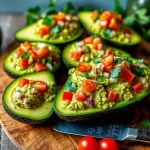Craving international recipes that are full of history and flavor? Look no further than India’s culinary treasures. From the crispy papadam appetizer to the creamy ras malai float dessert, these dishes are more than meals. They are gateways to a culture.
Explore global cuisine inspirations like masala chai tres leches or bombay sandwich sliders. These dishes are reimagined for modern kitchens. Every recipe balances tradition and innovation, making it easy to create homemade recipes for every occasion.

Our guide demystifies techniques like preparing paratha layers or mastering masala chai blends. Chefs like Deepa Awchat and Swati Harsha have refined these dishes over generations. They ensure authenticity while adapting to contemporary tastes.
Discover how to infuse your kitchen with spices like cumin and turmeric. Learn to pair chapati or dahi kebab with chutneys for balanced flavors. Whether you’re hosting a Diwali feast or a casual dinner, these dishes promise to impress.
Key Takeaways
- India’s 10 iconic dishes reflect its regional diversity and centuries-old culinary wisdom.
- Recipes like naan and papdi chaat are adaptable for both novice and experienced cooks.
- Learn to recreate street food favorites like masala chai tres leches with simple pantry ingredients.
- Discover how chefs like Beena Noronha preserve regional authenticity while modernizing techniques.
- Each dish connects to cultural stories, from Mughlai desserts to street food like chaat.
The Rich Culinary Heritage of India
Indian cooking is more than just food—it’s a journey through time. It spans from ancient spice routes to today’s kitchens. This heritage influences every cookbook recipes and kitchen foodie recipes we try today. Let’s see how history and geography shaped its flavors.
Ancient Culinary Traditions Dating Back Centuries
Every bite has a story from 5,000 years ago. The Indus Valley Civilization started spice blends. Mughal rulers brought in delicious international dishes like biryani. Even British changes, like adding tomatoes, became key ingredients. Learn more about this journey here.
Regional Diversity in Indian Cooking
North India’s creamy curries are different from Kerala’s coconut seafood. Each area uses local ingredients to make its own dishes. Think of Punjabi butter chicken, South Indian dosas, or Mumbai’s vada pav. With over 2,000 dishes, there’s always something new to try.
The Philosophy Behind Indian Food
Ayurveda teaches balance in every meal. It uses six tastes to nourish body and soul. Today, these ideas help cooks make meals that heal and satisfy. Start your journey by learning how these timeless ideas inspire today’s cookbook recipes.
Essential Spices and Ingredients in Indian Cuisine
Every Indian kitchen is filled with spices. These ingredients create the flavors and smells we love. Let’s explore the must-haves that make meals special.

| Spice | Flavor Profile | Common Uses |
|---|---|---|
| Cumin (Jeera) | Warm, earthy | Tempering, curries, rice dishes |
| Coriander (Dhania) | Citrusy, woody | Curry bases, marinades |
| Mustard Seeds (Rai) | Pungent, nutty | Tempering, pickles |
| Turmeric (Haldi) | Earthy, slightly bitter | Cooking oils, rice, spice blends |
| Red Chili Powder | Spicy, smoky | Curry sauces, marinades |
| Asafoetida (Hing) | Pungent, savory | Vegetable dishes, lentills |
Key items like ghee, tamarind, and jaggery add depth to dishes. Fresh ginger and garlic are great for sauces and marinades. For easy weeknight meals, try toasted cumin and coriander for quick curries. Savannah Ryan’s best recipe cookbook collection shows how these ingredients make comfort food creations like chana masala or dal.
Many spices also boost health. Turmeric’s anti-inflammatory benefits are great for healthy recipes and weight loss tips. Try different spice ratios to explore regional flavors. Having these basics lets you make famous dishes at home, keeping meals simple and healthy.
Butter Chicken (Murgh Makhani): The Creamy Delight
Butter Chicken is a classic comfort food loved by many. It was created in the 1950s in Delhi. Chef Kundan Lal Gujral made it by using leftover tandoori chicken in a rich tomato-cream sauce. Now, it’s a favorite chicken recipe around the world.
Origins and History
This dish was born at Delhi’s Moti Mahal restaurant. It turned leftovers into a luxurious dish. The sauce, made with tomatoes, butter, and cream, is both rich and tangy.
From street carts to fancy restaurants, it’s a beloved dish. It shows how good food can come from being resourceful.
Traditional Preparation Methods
Traditionally, chicken is marinated in yogurt and spices before being cooked in a tandoor. The grilled meat is then simmered in a sauce of tomatoes, butter, and cream. Home cooks can use a skillet or oven to get similar results.
Here are the key steps:
- Marinate chicken in yogurt, ginger, garlic, and spices for 2+ hours.
- Grill or bake until slightly charred.
- Saut onions, add tomato puree, then blend in cream and spices.
Authentic Recipe for American Home Cooks
Make this dish with ingredients you likely have at home. Our healthy dinner recipes tip: use coconut milk instead of some of the cream for a lighter version. Here’s a simplified recipe:
Ingredients:
- 2 lbs chicken thighs or breasts
- ½ cup plain yogurt
- 1 cup tomato puree
- ¼ cup heavy cream
- Spices: garam masala, turmeric, paprika, salt
Enjoy it with basmati rice or naan. For a quick dinner, use store-bought marinade or pre-chopped veggies. Our tips:
- Use an airfryer for crispy chicken in 25 mins.
- Adjust spice levels with cayenne or honey.
- Freeze leftovers for future quick meals.
Check out Tandoori Home Cooking for more delicious comfort food cooking tips. This dish is perfect for any occasion, showing that tradition and convenience can go hand in hand.
Biryani: The Royal Rice Dish of India

Biryani is more than a meal; it’s a celebration of history and skill. It’s enjoyed from street carts to royal courts. This layered rice dish combines global flavors with local pride. Let’s dive into how to make this easy dinner idea at home.
Regional Variations from Hyderabad to Lucknow
Each area puts its own twist on biryani with unique flavors:
- Hyderabadi biryani uses bone marrow chicken and charcoal-sealed cooking for smoky depth.
- Lucknowi style focuses on floral saffron notes and delicate dum slow steaming.
- Kerala’s Malabar version adds coconut and fish for coastal flair.
Try Hyderabadi recipes to experience royal-layering techniques at home.
The Art of Layering in Biryani
Mastering this dish requires patience:
- Marinate chicken in yogurt and spices like cinnamon, cloves, and cardamom for tenderness.
- Layer par-boiled rice with spiced meat, alternating with saffron-infused yogurt mixtures.
- Cook sealed to trap steam, ensuring every grain absorbs flavors.
This dum pukht method makes biryani a quick and affordable weeknight meal and a weekend project.
Pairing Suggestions for Complete Meal Experience
Balance bold flavors with cooling sides:
- Raita (yogurt cucumber dip) to cut richness.
- Crispy papads for texture contrast.
- Mango lassi for a tangy finish.
These pairings turn biryani into a dinner recipe perfect for gatherings or cozy nights.
Biryani’s adaptability makes it a timeless global cuisine inspiration. Let’s help you recreate its magic at home!
Masala Dosa: South India’s Crispy Sensation
Moving south from North India, we find Masala Dosa, a vegan wonder. This thin, crispy crepe is filled with spiced potatoes. It’s a hit for breakfast ideas or healthy snacks.
The batter is made from fermented rice and lentils. It’s fermented for 6–16 hours. This makes it light yet filling.
The potato filling is seasoned with mustard seeds and curry leaves. For easy vegan breakfast ideas, serve it with coconut chutney and sambar. You can also add paneer or veggies like peas or carrots.
| Key Variations | Ingredients |
|---|---|
| Rava Dosa | Semolina added to batter |
| Mysore Masala Dosa | Spicy red chutney served on the side |
| Cheese-Stuffed Dosa | Melted cheese folded inside the crepe |
Getting the batter right is crucial. Use cast iron or non-stick pans and grease lightly. Adjust fermentation time based on the weather. For the kitchen foodie recipes, try our method: pre-soak lentils and ferment in a warm oven (80°F).
Serve it with sambar and chutneys. It’s a protein-packed start to your day.
- Use idli rice for optimal texture
- Experiment with fillings like spinach or mushrooms
- Pair with tomato slices for fresh contrast
Masala Dosa is loved from street carts to gourmet kitchens. It shows that tradition and creativity can go hand in hand. Whether for a quick meal or a weekend project, it turns simple ingredients into something amazing.
Rogan Josh: Kashmir’s Aromatic Lamb Curry
Craving delicious international dishes that mix old and new? Rogan Josh is your answer. This Kashmiri lamb curry is more than food; it’s a flavor adventure. It blends Persian and Mughal styles, offering a dinner recipe full of bold, aromatic flavors.
“Rogan Josh’s essence lies in patience: slow cooking transforms spices into harmony.” — Maunika Gowardhan, Tandoori Home Cooking

The Distinctive Spice Blend
The red color of Rogan Josh comes from Kashmiri mirch, a chili that’s all about color, not heat. The key spices are:
- Kashmiri chili powder (for vibrant red)
- Fennel seeds
- Asafoetida
- Ground cardamom
- Saffron (for depth)
Cooking Techniques for Maximum Flavor
Follow these steps for tender meat and a rich sauce:
- Marinate lamb with yogurt and spices for 2+ hours
- Brown meat briefly in ghee to lock in juices
- Simmer uncovered on low heat for 1.5-2 hours
- Add baby potatoes in last 30 minutes for texture
Healthier Adaptations for Modern Diets
Make this classic a easy dinner idea with these changes:
| Traditional | Modern Update |
|---|---|
| Ghee | Coconut oil or olive oil |
| Full-fat yogurt | Low-fat Greek yogurt |
| Potatoes | Zucchini or cauliflower for lighter texture |
Rogan Josh works well in slow cookers or on the stovetop. It’s a quick dinner idea for when you’re short on time. This dish brings India’s rich flavors to your table, making it accessible to all.
Chole Bhature: Punjab’s Beloved Street Food
Chole Bhature is a comfort food favorite loved for its spicy chickpeas and soft fried bread. It’s a Punjabi classic that mixes tangy amchur with warm garam masala. This makes it a dish that’s both quick & easy cooking with the kitchen foodie and very satisfying.
| Chole (Curry) | Bhature (Bread) |
|---|---|
| Chickpeas, onion, tomatoes, ginger, garlic | All-purpose flour, yogurt, baking powder, water |
| Spices: cumin, coriander, red chili powder, garam masala | Seasonings: salt, sugar, cardamom pods |
This dish is a quick and affordable weeknight meal. It uses simple techniques. Here are three delicious comfort food cooking tips:
- Soak chickpeas overnight for tender texture; use canned for last-minute prep
- Simmer chole with a tea bag to deepen color without bitterness
- Let bhature dough rest 2 hours for fluffy rise—no yeast needed!
Serve with fresh onions, green chutney, and tangy lassi for balance. Try paneer bhatura or add veggies for new flavors. Whether at a market stall or your kitchen, Chole Bhature shows tradition and convenience can meet. With these tips, you’ll make Punjabi street food in your kitchen.
Vegetarian Delights: Why India Excels at Meatless Cuisine
Indian vegetarian cooking is a true art form. It turns plants into delicious meals. With centuries of creativity, these dishes offer bold flavors, nutrition, and simplicity. They make every meal a celebration of plant-based creativity, whether you’re a beginner or an expert.

Panir Dishes Worth Trying
Panir’s soft texture pairs well with any spice. Try these easy vegetarian dinner recipes for beginners:
- Kadhai paneer: Stir-fried with bell peppers and tomatoes
- Shahi paneer: Creamy sauces add richness without meat
- Panir tikka: Grilled for a smoky kick
These dishes are great with rice or flatbreads. They show that meatless meals can be filling and tasty.
Lentil Preparations Beyond Dal
Explore beyond basic lentil soups with dishes like:
- Dal makhani: Creamy black lentils simmered overnight
- Sambar: South Indian tamarind-based stew with veggies
- Pitha: Lentil-stuffed dumplings in spicy broth
Healthy recipes often highlight these dishes for their protein and fiber. Use them for balanced weeknight meals.
Vegetable Curries for Every Season
Seasonal veggies are the stars in curries like:
- Baingan bharta: Smoky eggplant mash with spices
- Undhiyu: Gujarati’s mixed winter veggie medley
- Avial: Coconut-infused Kerala specialty
These recipes use local ingredients. Swap paneer with tofu for vegan options. Try new veggies to keep your meals vibrant all year.
India’s vegetarian cooking is perfect for weight loss or exploring flavors. Start with these recipes. Discover how spices like turmeric and cumin make veggies unforgettable.
Tandoori Specialties: The Magic of Clay Oven Cooking
https://www.youtube.com/watch?v=SkWhpMqVyUY
The clay tandoor has been a key part of Indian cooking for over 5,000 years. It turns meats and veggies into smoky wonders. The high heat, up to 900°F, creates a perfect crust that’s both crispy and tender.
From tandoori chicken to paneer tikka, these dishes get their flavor from yogurt marinades. Even without a clay oven, you can make these dishes at home with simple tools.
“The tandoor’s heat is transformative, much like the techniques in Savannah Ryan’s comfort food creations—simplicity meets bold flavor.”
Tandoori Chicken: The Classic Preparation
Begin with bone-in chicken marinated in yogurt, cayenne, garlic, and garam masala. The yogurt keeps the meat juicy. For that iconic red color, add food coloring or paprika.
Broil at high heat to get that tandoor effect. This way, the skin crisps up without drying the meat.
Creating Tandoor-Style Dishes Without a Clay Oven
- Use a cast-iron skillet in the oven for even heat distribution.
- Preheat your oven to 450°F and let it stay closed during cooking.
- Marinate vegetables like eggplant or mushrooms for vegetarian options.
Even grill masters replicate smokiness by wrapping skewers in foil before grilling.
Marinades That Make the Difference
Yogurt is the base, but try citrus juices or coconut milk for healthy gluten-free dessert ideas. Add cumin and turmeric for extra flavor. Marinate for 2–4 hours.
For fish or paneer, marinate for less time to avoid sogginess. These tips work for chicken recipes or even authentic italian pasta dishes at home. It’s all about balancing acidity and fat in your marinades.
Whether grilling kebabs or baking roti, mastering tandoori techniques brings bold flavors. The secret? Patience in marination and precise heat.
Mastering the Indian Bread Basket

India has over 30 types of bread, each telling a story of its region. From Punjab’s roti to Kerala’s appam, these breads are more than food. They are cultural symbols. Let’s see how we can make these recipes work in our modern kitchens.
| Bread Type | Ingredients | Cooking Method | Region |
|---|---|---|---|
| Roti | Whole wheat flour, water | Griddle-fired | Punjab, North India |
| Paratha | Wheat flour, ghee, fillings like radish or spinach | Laminated layers, pan-fried | Punjab, Haryana |
| Naan | Leavened dough with yogurt, sometimes milk | Baked in tandoor or oven | Northern India |
Begin with chapati, the simplest roti. Mix 3 cups of stone-ground wheat flour, 1.5 cups of warm water, and ½ tsp of oil. Knead until smooth, rest for 30 minutes, then roll into discs. Cook on a hot skillet until puffed. This technique is a great start for more complex breads.
- Try making Rajasthani bajra roti (pearl millet) or Kerala’s coconut-infused appam.
- Use cast-iron skillets for even heat when making parathas.
- Practice dough kneading daily to get better at hand-stretching.
For easy weeknight meals, try makki ki roti (cornbread) or stuffed radish parathas. Our cookbook recipes focus on hands-on learning. Just 20 minutes of prep can turn simple dough into a cultural treasure. Remember, each fold and flip in paratha-making is a tradition passed down through generations.
Palak Paneer: The Emerald Comfort Food
Palak Paneer mixes spinach’s earthy taste with paneer’s softness. It’s a dish that’s both healthy and comforting. This North Indian dish is loved for its healthy dinner recipes and bold flavors. It’s a hit among easy vegetarian dinner recipes for beginners.
Let’s dive into how to make this emerald-green staple with some science-backed tips.
Nutritional Benefits of This Popular Dish
Each serving has 16.4g protein and iron-rich spinach. It’s a weight loss tips by the kitchen foodie favorite. With 331 calories, it’s packed with nutrients like turmeric and ginger.
It also has calcium and vitamin K for bone health. Ghee’s fat-soluble vitamins help absorb nutrients better.
Common Preparation Mistakes to Avoid
- Overcooking spinach: Overcooking makes it lose color and nutrients. Stir gently once it reduces.
- Ignoring spice balance: Add garam masala after blending sauce to keep it fresh.
- Skipping texture contrast: Pan-fry paneer cubes briefly to get crisp edges before simmering.
Fusion Variations for Adventurous Cooks
Try international recipes by swapping paneer for tofu for a vegan version. Add roasted pine nuts or arugula for a Mediterranean flavor. For keto diets, use coconut milk instead of cream.
Serve with cauliflower rice to cut carbs but keep the flavor rich.
The Sweet Side of India: Desserts That Captivate

Indian desserts are more than just sweet treats. They mix old traditions with new ideas. Imagine the crunchy outside of gulab jamun or the softness of rasgulla. These desserts are true treasures.
For those who love to cook, trying these desserts is like uncovering a world of flavors and history. It’s a journey through taste and tradition.
- Gulab Jamun: Fried milk solids soaked in rose syrup, a Mughal-era favorite.
- Kheer: Creamy rice pudding spiced with cardamom and nuts, adaptable as a carrot kheer for a vitamin-packed twist.
- Rasmalai: Silken cheese curds floating in saffron-infused cream, a Bengali specialty.
Today, you can make these classics easier without losing their true taste. Try healthy gluten-free dessert ideas like semolina cookie recipes with honey or brownie recipes with cardamom and pistachios. For help, check out Savannah Ryan’s Best Recipe Cookbook Collection.
Think about making mohanthal or adhirasam from Andhra Pradesh. These dishes use fresh ingredients like coconuts and bananas, often for festivals. Plus, many can be made vegan with plant-based milk and sugar substitutes.
“Every spoonful of payasam carries stories of harvests and rituals,” says Chef Anjum Anand, a pioneer in global Indian baking.
Begin with gajar ka halwa using shredded carrots, ghee, and spices. Or try coconut ladoos with desiccated coconut and honey. These healthy gluten-free dessert ideas keep traditions alive while fitting modern diets.
Indian sweets are more than just desserts. They connect us to our past. Whether using Savannah Ryan’s recipes or creating your own brownie recipes with cardamom, making these desserts brings joy.
Modern Interpretations of Classic Indian Recipes
Indian cuisine is changing as chefs mix old ways with new ideas. Modern kitchens blend traditional methods with fresh twists. This makes classic recipes fun and easy to try.
These changes respect the past while meeting today’s tastes. It’s a great way to keep traditions alive in our kitchens.
How Indian-American Chefs Are Reimagining Traditional Dishes
Chefs like Chintan Pandya and Maneet Chauhan are leading this change. They serve dishes like chaat-spiced fries and butter chicken pizza. These dishes mix street food with global tastes.
Places like Paradise Street Eats show fusion is here to stay. They prove that new twists don’t lose the real taste. Instead, they celebrate it.
Fusion Trends Worth Exploring
- Indo-Chinese classics like Manchurian and delicious international dishes like Indo-Mexican tacos
- Michelin-starred chefs like Gaggan Anand’s charcoal prawn Amritsari or The Song of India’s semolina foie gras
- Street food reinvented: samosa-inspired tapas and homemade recipes for every occasion
Simplifying Complex Recipes for Everyday Cooking
Even complex dishes can be quick and easy with smart tricks. Try batch prep or slow cookers to save time. For example, pre-made curries or frozen paneer keep flavors rich without the fuss.
Modern cookbooks like these offer easy steps for busy cooks. They help make old recipes fit today’s fast pace.
Whether it’s trying new fusions or making old recipes easier, the goal is the same. We want to keep traditions alive in our kitchens. Every change respects the past while looking to the future.
Incorporating Indian Flavors into Your Weekly Meal Rotation
Indian cooking doesn’t have to be just for special days. You can make quick dinner ideas and easy weeknight meals with bright flavors. Chef Swati Harsha, who moved from finance to cooking, shows it’s possible for anyone. She suggests starting with a basic pantry.
First, create a spice kit with cumin, turmeric, and garam masala. Keep lentils, basmati rice, and coconut milk on hand. This way, you’re set to try new things without feeling overwhelmed. For global cuisine inspirations, here are some tips:
- Prep ahead: Cook chana masala or moong dal cheela on weekends for quick lunches.
- Swap ingredients: Add garam masala to scrambled eggs or toss spinach with roasted cumin for a quick dinner idea.
- Layer flavors: Drizzle mint chutney over grilled meats or mix roasted cauliflower with tamarind sauce.

Try dishes like vegetable poha or baingan bharta with whole wheat roti on weeknights. Even small tweaks, like seasoning rice with curry leaves, make a big difference. Explore recipes from places like Maharashtra or Rajasthani dal bati churma, making them fit your schedule. Every spice blend or shortcut brings you closer to mastering this tradition. Your kitchen is your canvas; let Indian flavors make every meal special.
Health Benefits Hidden in Traditional Indian Cooking
Indian cooking is more than just taste—it’s a way to improve health. Ayurveda, an ancient healing system, guides many dishes. This helps balance body and mind. By following these principles, you can make healthy recipes and weight loss tips by the kitchen foodie that are both nourishing and satisfying.
Ayurvedic Principles in Indian Food
Traditional meals aim for harmony. A healthy dinner recipe like a thali plate mixes grains, lentils, veggies, and spices. This balances sweet, sour, and bitter tastes. It supports digestion and energy.
Try pairing rice with dal and raita for a balanced meal. This avoids blood sugar spikes.
Anti-inflammatory Properties of Common Indian Spices
Indian spices are full of health benefits. Here’s how they help:
- Turmeric (with black pepper) boosts brain health and fights inflammation.
- Ginger aids digestion and eases nausea.
- Cumin supports iron absorption and gut health.
For a quick healthy snack, mix turmeric milk or sprinkle cumin in salads. Learn more about these spices in this guide.
Balancing Nutrition in Indian Meals
Traditional cooking avoids extremes. Fermented dishes like idli and dosa improve digestion with probiotics. Choose steamed over fried to cut oil. Here’s how to adapt meals:
| Ingredient | Health Benefit | Example Use |
|---|---|---|
| Turmeric | Anti-inflammatory, antioxidant | In lentil soups |
| Coriander | Cholesterol management | Seasoned rice dishes |
| Fennel | Digestive aid | Post-meal seeds |
Try healthy gluten-free dessert ideas like coconut rice pudding or cardamom-flavored kheer. Small changes make big differences—your body will thank you!
Conclusion: Why India’s Cuisine Continues to Captivate Global Palates
Indian cuisine’s global fame comes from its mix of tradition and innovation. Each dish, from biryani to masala dosa, shares a story of cultural exchange. This rich culinary history, rooted in Indian food culture, inspires chefs everywhere. They blend old traditions with new ideas, like spiced pizzas or Ayurvedic salads.
Start exploring global recipes at the kitchen foodie with basic techniques. Savannah Ryan’s cookbook makes mastering spice blends easy. It also shows how to make tandoor-style dishes, combining old methods with today’s tastes.
Global cuisine shines in fusion dishes like coconut curries or spiced breakfasts. These prove Indian flavors can brighten any meal. Whether you’re looking for recipes for weeknights or trying dishes like ras malai desserts, there’s something for everyone. Dive into this world by trying new regional dishes or modern twists. Indian cooking is more than food; it’s a bridge between cultures, ready to make your next meal exciting.
Wait, need to correct the exact keywords properly. Let me adjust:













